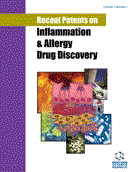Abstract
The impacts of air pollution on human health and disease have been attracting attention, especially in industrialized countries and areas with heavy traffic burdens. Fine particulate matters (PMs) are considered as an important air pollutant, since it was reported that there was a significant relationship between PM2.5 levels and mortality by cohort studies in 1990s. Epidemiological and toxicological studies have strongly suggested a causative relationship between fine particulate air pollution and increased incidence as well as exacerbations of asthma, and other respiratory disorders. Recent advances in research have elucidated that PMs primarily and secondarily induce oxidative stresses which result both in pro- and antiinflammatory activities. It has been demonstrated that gene polymorphisms of antioxidant enzymes might change responses to particulate air pollution exposures. To prevent health hazardous effects of particles, it is crucial to screen susceptible subpopulations and establish chemoprevention strategies in the world. Novel techniques and modalities are patented for future progress on better control of air pollution.
Keywords: Air pollutants, antioxidant enzyme, bronchial asthma, diesel exhausts, gene-environmental interaction, oxidant stress, particulate matters.
 50
50 4
4














